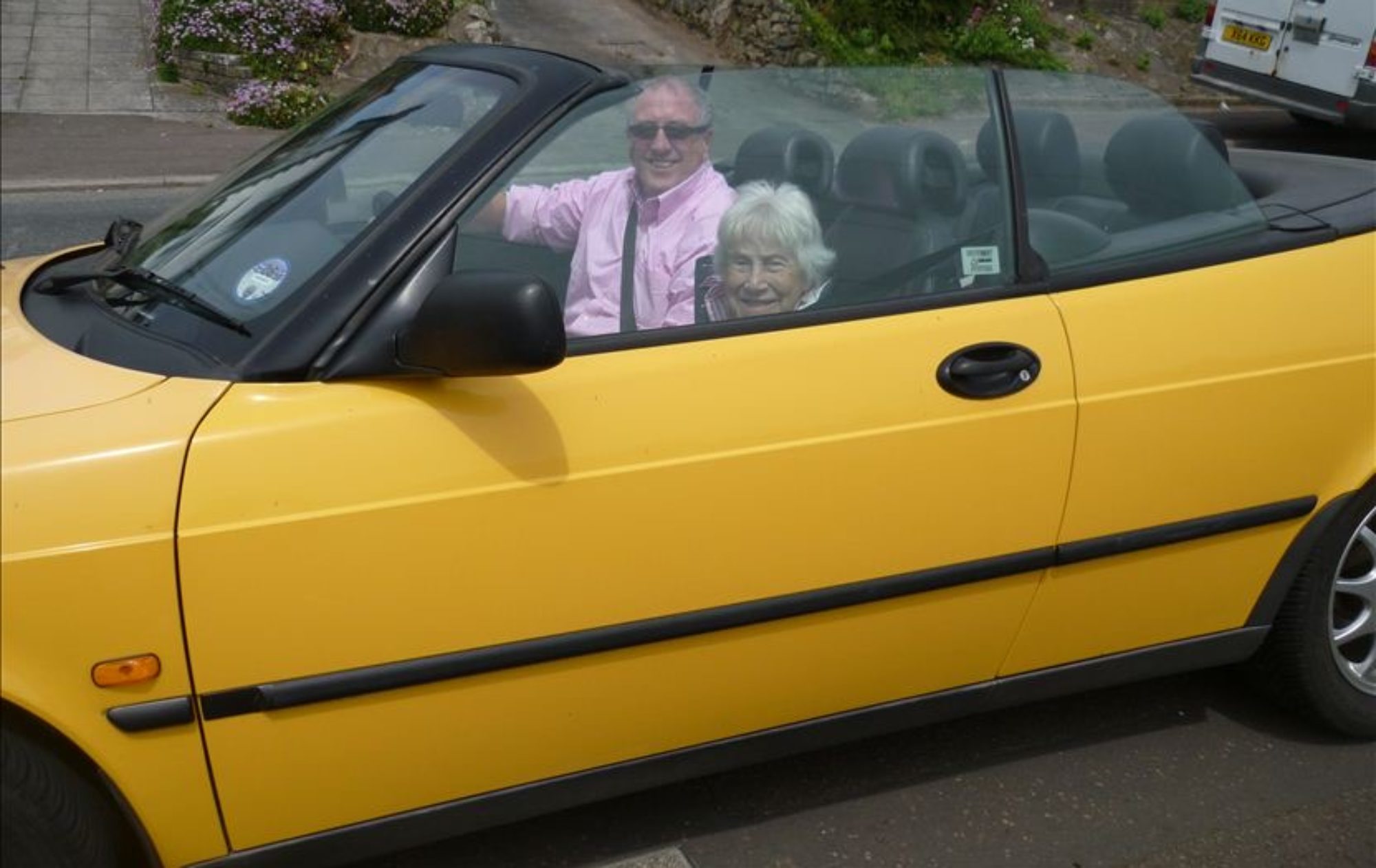To John Buckley……….. 6/ 03/ 1992.
It was a perfect autumn morning, near my birthday time. I was luxuriating in a rare day away from client work. Making a desultory attempt at clearing my desk. I was enjoying the peace of alone; I was also expecting a visit from my friend John. I use the word ‘expect’ in the loosest sense, as you never really knew when to expect John, or what to expect of him on arrival. I was half heartedly assembling a list of people to ring, compiled from several other dog eared, half crossed out lists, when the naff door bell chime sounded at the Mill house door. I recognised the outline of John through the frosted door.
‘Good morning, Mr Freidland,’ beamed John, throwing himself towards me in a half intimate, half clumsy, reticent hug. John had been calling me Mr Freidland since he first arrived at my new Dorset house, when I had as yet failed to replace the door bells manufacturers name on the plastic bell push with my own. With john, I enjoyed being Mr Freidland. It felt exotic and strange. I believe that the world often looked exotic and strange through John’s lens on the world, and I felt honoured to be dignified by a different name from my own, his special name.
John was a regular visitor last year. Our house was en route to a number of client assignments that he had down the Dorset coast – or at least he said it was en route, though I imagined that it involved a detour. I eased my discomfort at the thought of him putting himself out by reminding myself that John’s life seemed full of extravagant and often enjoyable detours. Part of my guilt around his irregularly regular visitations was that I had only once visited him and his family at his home. I remember on that occasion regretting telling him that I would find difficulty following his detailed instructions through that particularly complex patch of English countryside. On the journey there, passing a pub, the last given landmark two miles from his house, I began to see notices stuck to trees at each minor junction. The notes read, ‘Dan – john’s house this way.’ Not many people would do that for you.
I ushered him into my kitchen, where we shared our work and family agonies and absurdities over a cup of coffee and a cigarette. John had a strong sense of the absurd, and I always felt, if encouragement were needed, to enrich my client stories with a tinge of the ridiculous, as I recounted them to John. His animated listening encouraged further flights of fantasy.
As I looked back, it seemed that whenever John and I planned to spend time together exploring the meaning of the recent past, we instead spent most of our time together uncovering future possibilities. And that whenever the future was on our planned agenda, then the past would become compellingly captivating. It didn’t really seem to matter. It was how we spent our time.
I really enjoyed playing with the little boy in John. That perfect autumn’s day, we drove through the leaf strewn lanes in my newly acquired 1959 sports car, to an intimate pub in the middle of nowhere, run by a friend of mine. John revelled in the car, enjoying in particular the surge of power that kicked in when I knocked off the overdrive. He determined that he would get himself one. He had driven all the way down to me in his modern lilac open top, but there was a simple primitivism about the triumph that really appealed to him.
Over lunch, we drank some beers, and I shared some writing that I had been doing on reviewing my life’s direction. Much of what I had written, john related to. We talked in particular about the need for, and the difficulty in expressing creativity in a world that demands explanation and predictable solutions. We talked of the loneliness and demands of the consulting life, and reflected on the energy that it takes to stay inspirational among resistance and mediocrity, and among people who settle for less.
John was particularly struck by one line I wrote… ‘ I do not want it written on my gravestone that ‘ he really advanced.’ We spent some time dwelling on that one. The joys of the material life seemed to both attract and repulse John. He certainly could advance, had advanced; but did he really need to?
The Triumph transported us home. We drank some more coffee. John expressed how important our times together were for him, how they helped him contextualise his struggles and triumphs. I felt vaguely discomfited. I never really knew what it was he wanted, always seemed that there was something else there, some blazing need that remained unexpressed. I felt at once encouraged to touch but also warned off from getting too close tot hat secret place. There were tears there.
It was getting close opt the time for John to go. My telephone was becoming too persistent to ignore. I was not quite sure where nod when we would meet again, only I was confident that we would. The closeness was there, and the possibilities seemed limitless, if ill defined, as they often did with John. That didn’t really matter to me. It was part of the charm of being a friend of John’s.
Another hug and he was back inside his open top car the interior of which was beginning to resemble an inner city skip. John took off his new half rim spectacles. I was not sure whether he needed them. They were identical to mine. John reversed out of the driveway with a wry smile and an accompanying ‘Bye Bye Mr Freidland. Love to Mrs Freidland.’
That was the last time I was to see John. And today we bury him. But hopefully not all of those possibilities.’
